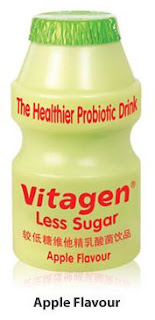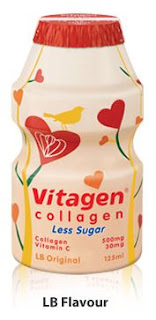Yakult
developed the market of probiotic fermented milk drinks (hereinafter probiotic
drink) and, consequently, holds the higher brand recognition in the relevant
market, to the point that other brand’s product are usually referred to as
Yakult by final customers.
Yakult
developed four different distribution channels: home delivery by independent
sellers, exclusive stores, supermarket chains, and dairy stores of milk
products. In this distribution structure, Yakult offers the same product in
different presentations and at different wholesale prices between their
distributions channels, but maintains the same minimum retail price. Most
favorable conditions were granted to independent sellers, which accounted for a
huge proportion of Yakult’s total sales income.
Q1. As Yakult is an easily deteriorating product, how can Yakult make sure the whole supply chain including manufacturing, distribution and transportation is good enough to handle this perishable product?
Q1. As Yakult is an easily deteriorating product, how can Yakult make sure the whole supply chain including manufacturing, distribution and transportation is good enough to handle this perishable product?
Today
Yakult investigate the important steps which ensure that they deliver the
highest quality products to the customers. The Yakult manufacturing has strict
procedures in place to guarantee that the quality of the products is never
compromised.
Yakult’s
International Organization for Standardization products and services how their
products and services meet the highest international food manufacturing
standards. The policies and procedures are also independently audited as
regular part of the accreditation process.
Testing
at the on-site quality control area ensures that every bottle of Yakult and
Yakult light contain 6.5 billion probiotic bacteria; the unique Lactobacillus
casei strain and also guarantee a product of the highest integrity.
The
commitment to quality extends beyond the manufacturing facility through each
stage of the distribution process to stores, ensuring the cold chain to stores
is uninterrupted. In practical term this mean the temperature in the Yakult
refrigerated vans and transport
delivery vehicles is below 4 ℃.
Yakult
staffs are committed to giving the best service possible. Their highly trained
sale team work at supermarket level to ensure that product is not out of date
or damaged and the Yakult fridges are clean.
These
are all vital steps in Yakult quality process. Therefore, they can ensure the
quality of product during the manufacturing and transportation.
Q2. There are similar products of Yakult in
the probiotic product market. They are similar with the bottle size and design.
How can Yakult confront with the competitors? What is the positioning of Yakult
in Hong Kong to have a sustainable development?
Yakult is a premium probiotic cultured milk-like
product made by fermenting a mixture of skimmed milk with a special strain of
the bacterium Lactobacillus casei strain Shirota. From the perspective of
preventive medicine, Yakult has included its range of products from food and
beverages to cosmetics and pharmaceuticals using probiotics. Yakult is not only
a pioneer of probiotics but has since become the world’s leader in this field
against the competitors by providing varieties of probiotics products, e.g.
Yakult Light, and different packaging in different countries all over the
world. As Yakult is produced locally, the highest quality and freshness of
Yakult sold in Hong Kong can be ensured. Yakult continues its healthy journey
to spread to all Hong Kongers about the awareness on the benefits of its unique
probiotics, L.casei strain Shirota with the principles of Shirota-ism.
When
the Company first introduced Yakult in Singapore in 1978, there was a
competitor called ‘Vitagen’, which was introduced in Singapore in 1977 and the
first company in Singapore to offer a probiotic milk drink with the similar
functions as Yakult. Therefore, in order to compete with the competitor, the
Company introduced Yakult with different flavors other than original one such
as green apple.
Nowadays,
there are many flavors of milk drinks in Singapore. For example:
Yakult
|
Vitagen
|
||
Original
Flavor
|
Original
Flavor (LB Flavor)
|
| |
Grape
Flavor
|
|
Grape
Flavor
|
|
Orange
Flavor
|
|
Peach
Flavor
|
|
Apple
Flavor
|
Apple
Flavor
|
| |
Original
Flavor (LB Flavor) with Collagen
|
| ||
Rose
Flavor with Collagen
|
| ||
Elderflower
Flavor with Collagen
|
|||
Q4. Does the demand of Yakult vary throughout
the year and how do you forecast and manage the production accordingly?
As
the business of Yakult is developing continually in the world, Yakult is sold
in more than 30 countries around the world and more and more people recognize
the benefits of drinking probiotic milk drinks such as Yakult. Thus, the demand
of Yakult continually increases. Especially in China, the demand of Yakult
increases so many Chinese people come to Hong Kong to buy Yakult. Nowadays, the
daily sales of Yakult are 30,000,000 bottles on average around the world.
To
forecast the demand and manage the production in Hong Kong, there are more than
one hundred employees going to the retail stores around Hong Kong to collect
data of the demand. Then, the data about demand collected and integrated help
the Company decide how many bottles of Yakult to be produced.
In order to deal with the increasing demand in
mainland china, Yakult is driving up the production of its premium probiotic
cultured milk-like drink at its Tianjin facility in China to ensure meeting the
growth opportunities. Yakult has to double the production to 1.2 million
bottles per day by May 2013 from current capacity of 600,000 per day. Moreover,
the Tianjin production plant is only one of three Yakult production plants in
China. Under the three production plants, Yakult can produce a total of 4.2 million
bottles per day, as to meet the demand in mainland China.















My favorite probiotic drink is Yakult, Its delicious and can help your digestion.
ReplyDelete